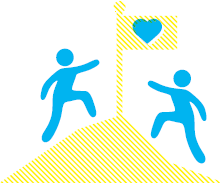
“Companies that do good are
more likely to be trusted. Trust and
reputation are precious commodities
in today's market.”
Part Two: Chapter 5
Inspire Brand Fanatics
By Craig Kielburger
The Beatles, Bieber, and … you? Purpose can make your customers superfans
Selena Gomez is casually perched on the edge of a stage, chatting with a stadium packed full of starstruck youth. It's WE Day Chicago 2015. At her side, a teen computer whiz types away on a Microsoft Surface. Gomez tells the rapt audience, “There is a brand new kind of world-changer out there and their first language is code. With me is Abril Vela.”
Abril moves her fingers swiftly. “I just wrote this code while we were sitting here. Why don't you finish it?” Gomez reaches over, types in a few letters. The message I <HEART> WE DAY appears on the massive screen behind the pair. The crowd erupts in cheers.
Abril is an alumna with Microsoft's Youth Spark program, which encourages girls to use technology to effect social change. But Gomez isn't a Microsoft spokesperson; we don't even know if she owns a Surface. Frankly, it doesn't matter. On that stage in front of thousands (and on the TV broadcast that aired later to millions), the celebrity with the most Instagram followers on the planet was an unofficial brand ambassador.1 Gomez showed young people how “easy” and “cool” (her words) it is to use technology to code, communicate, and change the world. Not a penny was spent on an endorsement deal and yet all parties benefited. Gomez followed her deep passion for a charitable cause and connected with her followers in a unique way. Microsoft created an association in customers' minds with one of the biggest stars on the planet. It was a win, win, win.
Watch Selena Gomez in this WE Day moment: Click for video.
Can Your Team Make a Difference?
In 2016, Microsoft Employees:2
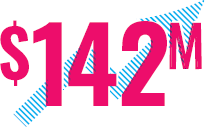
Raised US$142 million for charity
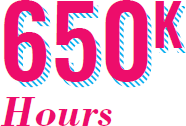
Volunteered 650,000 hours
You Can't Buy That Kind of Press3
WE Day broadcast viewers were two times more likely than nonviewers to see Microsoft as a company that uses technology for social good.
For those of us over a certain age, allow me to introduce Selena Gomez, actress, multiplatinum recording artist, and producer who's bouncing a celebrity spotlight onto the causes she cares about most. Gomez granted so many wishes through the Make-A-Wish Foundation that the organization gave her an award in 2012. Working around movie shoots and concert tours, she granted more than 90 wishes from sick children, including hospital visits and concert invitations.4 A UNICEF ambassador since 2009, Gomez has held charity benefit concerts, supported numerous campaigns, and traveled on field missions to Chile and Ghana.5 These are just two of her higher-profile initiatives, as the star is also concerned with girls' education and animal welfare, among many other causes. Not to mention, she's one of the nicest and most genuine people we've met.
Gomez also happens to be social media royalty. As of this writing, more than 100 million followers are signed on for selfies and behind the scenes looks at her concert tour through her Instagram feed—with a few carefully considered product shots in the mix. AdWeek estimated that a single post across all of her platforms is worth more than half a million dollars. This is not what Gomez is paid per post, but the “ad-equivalent value,” a metric calculated based on a number of factors, including the potential to create sales conversations. Added up, it amounts to “the statistically most influential person on social media.”6 Welcome to the age of the influencer. Any marketing consultant will tell you that teens don't want to be blatantly sold to. Instead, they look to their peers or role models to interact with products while they witness the experience. Fans relate to Gomez and her collaborations.
Increased access to technology has lowered barriers to entry and saturated markets, leading to a decline in brand loyalty and a growing distrust of companies among a well-informed public with more brand choices than ever. Customer allegiances are shifting. In Canada, roughly three-quarters of people surveyed said they had recently switched from a preferred brand.7 In a global study, 84 percent of shoppers said they seek out responsible products whenever possible and a whopping 90 percent would boycott a brand with deceptive practices.9 Today, with so many purchases tied to our identity as social media channels effectively create our own personal brands, consumers want to feel they are buying into a cause or movement that's meaningful.
Brand fanatics—those who not only fall in love with your products, but also convince their peers to buy them, are not just harder to come by, but also harder to lure using old-school advertising. In the age of ad fatigue, showing customers you care about their issues is more effective than a billboard or pricey prime-time commercial. That's why companies are as eager as kids to get into WE Day and other social initiatives. These platforms demonstrate their business is committed to purpose.
The Death of Traditional Advertising?
“Tesla Motors has no advertising, no ad agency, no CMO, no dealer network, and that's no problem,” says
Advertising Age.
Traditional ads are falling by the wayside in favor of word-of-mouth brand fanaticism or user-generated content. Inspiring brand fans means getting them involved.8

93 percent of consumers find user-generated content helpful when deciding what to buy.
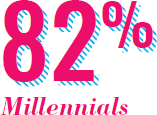
82 percent of millennials and 52 percent of boomers favor referrals from friends and online social networks when picking a purchase.
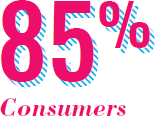
85 percent of consumers believe user-generated content is more influential than brand videos or photos.
WE Day 101
WE Day is our global youth empowerment event. I like to call it the Super Bowl of Social Change. Like the world's biggest football game, WE Day is a stadium-sized event. It was held in 15 cities in 2017, with smaller, community-run events in even more locations. It brings together world-renowned speakers and performers with thousands of young volunteers to honor their contributions and kick-start another year of change. The “price” of their ticket is paid in food drives, charity dance-a-thons, and bake sales. Every young person at every WE Day in cities around the world earns entry by supporting one local and one global cause. Annually, this adds up to helping more than 2,500 causes and charities. To support kids on their mission beyond the event, the WE Schools service learning program engages 15,000 schools reaching over four million students with free educational resources, service campaigns, and mentorship programs.
WE Day is pretty exclusive. Watch actor Seth Rogen serve as doorman for WE Day California: Click for video.
Youth in attendance might worship at the altar of teen idols, but they cheer just as loudly for Selena Gomez and Demi Lovato as they do for Malala Yousafzai and Archbishop Desmond Tutu. WE Day is the only stage in the world where you can find Prince Harry, Jennifer Lopez, and Jane Goodall rubbing elbows with local nonprofit heroes and tens of thousands of student volunteers.
Experience the energy in the room with Malala onstage at WE Day UK: Click for video.
Alongside celebrities and inspirational speakers, WE Day invites corporate partners onstage to showcase a cause, charitable organization, or service campaign important to them. People often ask us why we have sponsors at all. Well, to start, we could never bankroll a series of free events for 250,000 attendees in 15 cities around the world. The majority of the students in our U.S. program alone are from lower-income schools that need free or reduced-price lunch programs to feed students. WE believes that every youth, regardless of socioeconomic background, should have access to service learning as well as volunteer opportunities. Secondly, I've never met a chief executive who feels they get enough credit for doing good. And without positive incentives, what motivation do companies have to support social causes? Equally important, we want youth to start thinking about companies, their consumption, and their own future employment as mechanisms for helping the planet. We want them to understand that consumption and talent have power; they can vote for the good companies with spending habits and career choices.
We imagine a future in which logos and marketing gimmicks lose status while a robust social mission becomes the new measure of brand credibility. Just like a company's Super Bowl commercial becomes water-cooler talk in the days after the game, we want people to be buzzing about companies that are authentically doing good. We want teens to consider the cause and product impact, rather than the traditional advertisement, when buying clothes or coffee or a tablet. With the scale of WE Day—the 2017 broadcasts attracted 8.9 million viewers—we are making great progress to that end.
See a bit of the show in a higlight reel from our WE Day events: Click for video.
Purpose can create brand ambassadors by elevating the customer and manufacturer roles into a more fundamental relationship based on shared values. Companies that do good are more likely to be trusted. Trust and reputation are precious commodities in today's market.
Solving the Trust Deficit
Once upon a time, Don Draper swirled whiskey and burned through packs of Lucky Strikes while brainstorming new ways to manipulate housewives into buying detergent. We all miss Mad Men, but in real life, we've become wary of all things corporate, including ad messaging. Our trust in big companies is deteriorating, especially when it comes to innovation. It's widely perceived that companies aren't using the power of technology for good. More than half of global respondents in Edelman's 2015 Trust Barometer survey felt that greed, money, or growth were the primary motives behind business innovation—that's two times more than those who thought companies innovated in order to make the world a better place.10 This puts Microsoft's impressive feat of reputation into perspective.
As we lose faith in large organizations and their ability to make the world better, we're experiencing a rise in business founded in grassroots communities, especially online. The explosion of the sharing economy, which is based on reciprocity and reputation between strangers, shows us just how much our thinking about trust has shifted.
Everything your parents taught you about not getting into cars with strangers has become obsolete. You can hail a ride through an app instead of a using a taxi service. You can bypass traditional organizational structures and rely on the kindness of strangers to buy almost anything (Craigslist, Etsy); fund your next venture (Kickstarter); board your pet (Rover); borrow power tools (Zilok); or support charity projects (Change .org, Crowdfunder UK). All of these structures have been broken down by building a community with shared values or a binding purpose. We trust in a group of peers with shared interests as much as—or more than—we trust in big companies.
Today, most travelers wouldn't dare book a hotel without checking online reviews. In fact, millions are choosing to stay in someone's vacant apartment based on referrals from people they've never met. As recently as five years ago, this notion would have been absurd, but Airbnb, the online apartment-swap tool that charges service fees for every booking, is reportedly valued at $30 billion,11 more than most of the big hotel chains.12
Stranger danger aside, putting our faith into an aggregate of users makes complete sense. Sharing our lives digitally, including purchases, means consumers can look to other consumers for feedback, not just to the brand. We identify with other users as vacationers, startup enthusiasts, fellow donors, or petition signers because of an immediate and obvious mutual interest. We trust our community more than a company, and elect leaders by liking and sharing their content. We know what they value because we value it too.
No offense meant to your marketing department, but most consumers are more concerned with online reviews than with your multimillion-dollar ad-buy. Consumers aren't just buying from businesses anymore. They are buying from other people.
So the question becomes: How do companies replicate that peer-to-peer experience? It ought to be easy. Surprisingly, consumers already tend to view companies as people.
One of the leading researchers into the phenomenon of “human companies” is Susan Fiske. The professor of psychology at Princeton University has published widely on the topic of social cognition. With marketing consultant Chris Malone, she wrote The Human Brand: How We Relate to People, Products, and Companies, which argues that we apply person-to-person social filters to our interactions with brands. One of the first things people want to know when they “meet” a brand is “whether the company has their interests at heart and the interests of society, or are they just self-serving?” Next, we assess competence, or “how good are they at doing what they set out to do?”13
A few things struck me about this. First, our assessment of competence could explain why a product “working fine” doesn't get people excited to post on social media. You don't lure brand ambassadors with functional merchandise. This is the bare minimum.
Next, and more importantly: we're more likely to trust a brand that, we believe, prioritizes our interests and the interests of society.
A brand can become massively successful—trustworthy and competent by human standards—when it is no longer “us” selling to “them,” but instead is recreating that peer-to-peer sense of community fostered online. If your business and your customer come to a mutual purpose rooted in values, like sponsoring a charity race to end breast cancer or raising awareness for mental health, then the relationship becomes about the greater good.
Companies tend to score lower in consumer trust if it's believed they are operating with self-interest instead of social good.14
Be clear about what your company stands for. If you don't know, your customers won't either.
Bullies vs. Friends Who Share with Friends
Sitting in an early morning math class, Lynelle Cantwell heard whispers and laughter from her peers. A list had been posted online, ranking the 12 “ugliest girls” at her high school, and she was one of them. “I realized I had a choice to make,” she told an audience of 18,000 at WE Day Vancouver in 2016. “I could react with anger and negativity, or …” Lynelle chose option two, and penned a Facebook missive defending herself against the surface appearance her classmates had attacked. “I am funny,” she wrote, “kind,” “down to earth,” “accepting,” “easy to talk to.” To those who created the distasteful list and callously ranked their peers, she wrote: “I feel sorry for you.”
“In order to do well in business, we must do good in the communities where we live, work and serve as citizens.”15
—Darren Entwistle, President and CEO, TELUS
Lynelle posted her response that morning; by gym class that same afternoon it had spread. Support streamed in online from readers across the country. Her story also resonated with representatives from Canadian telecommunications giant TELUS, who approached her about a partnership. The company had made a public commitment to end cyberbullying and create safe spaces online; Lynelle was recruited as part of its Rise Above campaign to speak at WE Day events across Canada. If it seems odd that a telecomm company headhunted an inspirational youth speaker, think about it a bit more.
Most customers don't have a sentimental attachment to their cell phone providers. They want a decent signal and an affordable plan that solves a basic need to communicate. TELUS went beyond the necessity of service, aligning with teens and their parents in a fight against the scourge of our digital era. If you don't work closely with youth, it's easy to forget that online bullying is brutal and debilitating, the schoolyard taunts that follow you home and everywhere you go, documented forever in public. Victims often become depressed, anxious, and even suicidal. Lynelle, a survivor of online abuse, reached a total audience of more than 6 million, including at various WE Day events and on the televised broadcast. Young people looked to her as a hero; she helped those kids understand that they are not alone. For a digital comms company, it's an authentic cause connection that resonates with customers and relates to the brand.
Watch Lynelle onstage at WE Day: Click for video.
TELUS also partnered with us to co-create a WE Day app, a platform where young people committed to social change could share ideas and inspiration, issue volunteer challenges, and log their service hours. Digital natives who are connected, collaborative, and ready to come together to do good can now convene safely to share stories and tips about their journeys for social change. Among the app's features are peer-to-peer “challenges” that rally the online community to perform daily acts of kindness. More than 100,000 challenges have been accepted by users to date, including a call to plant trees and reach out to befriend a neighbor. One of the more unique ideas is a challenge to learn basic carpentry skills to support the trades and “make Canada strong by building it piece by piece.” TELUS went from a cell phone provider to the creator of this supportive online community, especially in the eyes of many parents. In return, those parents became brand fans for a cause that helps their kid—and for the company responsible.
Partnering with Purpose to Drive Results16
TELUS supported the very first WE Day event in Toronto in 2007, and has been a partner ever since—with benefits.
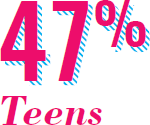
47 percent of teens involved in TELUS-sponsored WE programs spoke positively about the company to their parents.
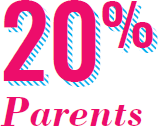
20 percent of parents who were aware of the company's charitable work with WE purchased a TELUS mobile phone and plan.
Consumer response to TELUS and its antibullying initiatives are proof that people respond to values-based outreach. Purpose programs can also gain recognition from third-party groups, accolades that will surely act as fodder for more brand fans. The company has been globally recognized as a purpose leader. In 2010, TELUS was named most outstanding philanthropic corporation in the world by the Association of Fundraising Professionals.17 In its home country, it's consistently designated a “caring company” by national charitable watchdogs for giving more than 1 percent of its pretax profits to charity. Since 2000, TELUS has donated $300 million to charitable organizations, and staff have volunteered 4.8 million hours of service to communities across the country.18
Inspiring a network of brand ambassadors is much easier to do on a foundation of purpose.
